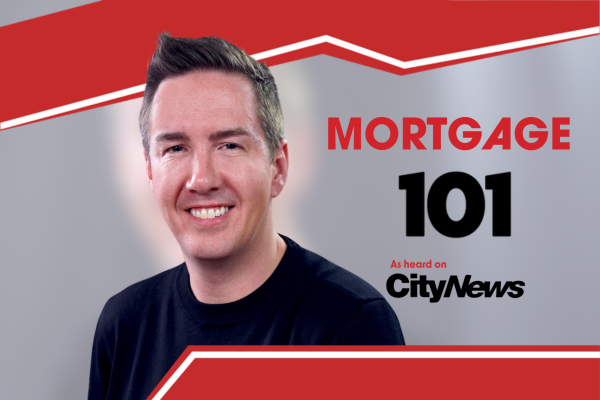What are the implications of the 30-year mortgage? Clinton and Todd sit down this episode and chat a bit more in-depth about what the 30-year mortgage means for first time homebuyers, noting the need for affordable housing options in the region, especially in urban centers like Halifax. Clinton emphasizes the importance of builders offering spec homes to cater to first-time buyers, advocating for standardized, cost-effective builds to reduce market competition and stress for buyers.
Mortgage 101 – refinance to love your home | February 2022 Part 2
In this episode of Mortgage 101 with Clinton Wilkins and Todd Veinotte, as heard on CityNews 95.7, the guys talk about how you can use a refinance to love your home! Learn all you need to know about refinancing like, if you are a good candidate to refinance, when is the best time to refinance and what you need in order to refinance, along with a few helpful tips and insights along the way.
Mortgage 101 with Clinton Wilkins & Todd Veinotte: Refinance to love your home
Don’t feel like watching the video? Check out the transcript below.
Transcript:
Refinance to love your home
Todd Veinotte: [00:00:00:01] How do you love your home if your home isn’t what you want it to be, but you want it to be something else? You need cash, right?
Clinton Wilkins: [00:00:06:13] Yeah, I’ve been there personally. Have you been there? Like, you’ve owned a lot of homes too, right?
Todd Veinotte: [00:00:10:05] I’ve been there. I’m actually there right now, and I recently did a deal with you, quite honestly.
Clinton Wilkins: [00:00:15:00] Yes, you did.
Todd Veinotte: [00:00:15:15] Let’s have full disclosure: I’m a client.
Clinton Wilkins: [00:00:16:28] You are a client.
Todd Veinotte: [00:00:17:25] And I have a nice little home in Spryfield and I need about another, I’m not going to say the number figure, but I need another little dollar figure to get it to where it really needs to be, and we managed to put a good deal together with your help to do that.
Clinton Wilkins: [00:00:30:00] Yeah, and I think it was the right time for you.
Todd Veinotte: [00:00:32:00] Yeah, it was absolutely the right time because a lot of people are in that position because equity is there for people, right? In this area and I’m sure in Ottawa there are a lot of people in the same boat.
Halifax and Ottawa markets are similar
Clinton Wilkins: [00:00:43:00] Yeah, I think the Ottawa market and the Halifax market, typically very similar, very similar. You know, home prices across the country have increased, but I think Halifax and Ottawa are very similar. Very similar markets. You know, we’ve a lot of federal government employees here in Halifax.
Todd Veinotte: [00:00:58:00] And provincial.
Clinton Wilkins: [00:00:58:23] And provincial, of course. And you know, in the nation’s capital, it’s the same type of situation.
Todd Veinotte: [00:01:04:17] Military. A lot of military people in Ottawa as well.
Clinton Wilkins: [00:01:06:10] I think so, too. And you know, I’m going to use it pre-pandemic, I don’t even know like, is that really… I guess that’s a thing? Pre-pandemic. You know, in Halifax, we probably had maybe more of a nightlife than Ottawa had. I’ve been Ottawa, Ottawa’s fun, but I think, you know, Halifax might be slightly more lively.
Todd Veinotte: [00:01:23:27] We’re East Coasters. We know how to actually really party on the East Coast.
Clinton Wilkins: [00:01:28:02] And like the kitchen parties and all these things. And I think we may have the most bars per capita, but I’m getting a little bit off topic. Let’s talk a little bit about home prices.
“Friends don’t let friends take a fixed-rate.”
Todd Veinotte: [00:01:36:27] Okay, but the point is you need the equity in the home or the deal is not happening, right?
Clinton Wilkins: [00:01:42:25] One hundred per cent. And you know, in your scenario specifically, you know, we knew each other obviously from the radio and you were buying a new home and we did that deal and that was all cool. You got into it. Everything was good. Copacetic. You did a variable-rate.
Todd Veinotte: [00:01:57:13] Yes.
Clinton Wilkins: [00:01:57:20] Great choice.
Todd Veinotte: [00:01:58:18] That was your advice.
Clinton Wilkins: [00:01:59:29] And obviously, that was pretty good advice back then.
Todd Veinotte: [00:02:02:08] Yeah.
Clinton Wilkins: [00:02:02:23] Just like what I said: Friends don’t let friends take a fixed-rate. Now you’re in a position, obviously, the equity is much more than when you bought it. There was a good price growth.
Having home equity to refinance
Todd Veinotte: [00:02:13:23] Exponential growth.
Clinton Wilkins: [00:02:14:08] And you pay down the mortgage, which is also positive. So you have that equity that you were able to leverage and now use those funds to improve your home. I think you like your house now.
Todd Veinotte: [00:02:23:21] I love my spot. But you know what? I’m going to love it even more when it’s all finished, and now I have the money to do that because of the deal.
Clinton Wilkins: [00:02:30:11] Yeah, and I think you’ve said to me a few times it’s like you had some, you know, issues that pop up. That’s very common.
Todd Veinotte: [00:02:35:12] I had to deal with that, but I had the ability to deal with it.
Clinton Wilkins: [00:02:38:12] Right, and you had the cash and credit to be able to like, figure that out. And you’ve also done a lot of work to the inside.
Todd Veinotte: [00:02:43:14] I did a lot of work to the inside.
Clinton Wilkins: [00:02:45:01] But now the situation is, how are you going to take it from this house that you, you know, you love it already, but how do you really love it?
Are you a good candidate for a refinance?
Todd Veinotte: [00:02:51:22] Right. So what made me a good client then, and not this about me, but for an educational perspective. You deal with a lot of clients, I think I’m probably if you could map out somebody that you’d want to work with and their scenario it would be me.
Clinton Wilkins: [00:03:06:15] Yeah, I mean, obviously, your easy because I give you a list of things and you get it to me right away.
Todd Veinotte: [00:03:11:22] And that’s key. That’s a huge component to this, right?
Clinton Wilkins: [00:03:14:13] Yeah. You know where your documents are. That’s good. Your credit’s good. That’s great. You were in a variable-rate, so the penalty to exit your existing term was only three months interest. So like that is nice, Todd.
You know, some people that we see when we do a refinance, we try to do a refinance, you know, if you’re at a fixed-rate, obviously, when you’re at renewal. But in your case, you would have had to wait a couple of years to be at that renewal place because you were in a variable and the rate that you had from before we were actually would able to give you a better interest rate and it’s only three months interest to get out.
The nice thing is in your scenario, you bought when the price was still relatively low and you were able to benefit from the increase in the property values and now have this equity that you’re able to access. So that’s, you know, I think it’s kind of the best scenario. And in your situation, it’s really the path of least resistance. Good for you.
And it’s a pretty easy transaction for us and we’re really able to make you happy, right? Because now you have this equity, you have a lower interest rate, you have the equity in your hand to do the work. And now once you do your work, Todd, your home is going to be worth even more than what it was right now today.
Todd Veinotte: [00:04:28:13] Exactly. Yeah.
Clinton Wilkins: [00:04:29:13] It’s a no brainer.
Refinance advice: Put the money back in the home or consolidate your unsecured debt
Todd Veinotte: [00:04:30:01] It’s a no brainer. So I think it’s important, though, when people want to do these things because you’re putting cash in my account. I could go to Las Vegas and gamble that money, right?
Clinton Wilkins: [00:04:38:20] You know what? You still might. I don’t know! I don’t think so though.
Todd Veinotte: [00:04:42:16] Well, no I get it. But the point is.
Clinton Wilkins: [00:04:45:04] But I’ll also be on you to be like, how are those renovations going? It’s the accountability sometimes.
Todd Veinotte: [00:04:49:29] But the point, I think, is is that people need to be personally responsible and accountable once they get that money to put it into the house.
Clinton Wilkins: [00:04:57:00] One hundred per cent, yeah. And I think some people that refinance, and I don’t want to discourage this because I think it’s a great way to do it. Some people will refinance to consolidate their unsecured debt. Nothing wrong with it.
Todd Veinotte: [00:05:11:11] It’s a good idea.
Clinton Wilkins: [00:05:12:05] It’s a good idea if you have the equity, but I think it’s something that you shouldn’t just get in that same situation again. You know what I mean?
Todd Veinotte: [00:05:18:29] Don’t use it as a bank.
Clinton Wilkins: [00:05:19:29] Or as an ATM, yeah. And there certainly are some clients that refi over and over and over again. Sometimes it’s to improve your property, but I think in some cases they’re using that home like it is an ATM. And what happens if that price growth of the home slows? And you’re not able to do that refinance, you know, every like two or three or four years? You know, in your case, we could do a refi today. You do your renovations and maybe in another year time do another refi. You probably have more equity in a year’s time when your renovation is done than you do today.
Todd Veinotte: [00:05:54:11] Exactly, exactly.
Clinton Wilkins: [00:05:55:21] And you know, we see this. I think every transaction is a snapshot in time. And you know,
When is the best time to refinance?
Todd Veinotte: [00:06:04:14] What do you mean by that?
Clinton Wilkins: [00:06:06:00] It’s based on what the property value is. What are your assets? What’s your income?
Todd Veinotte: [00:06:11:08] Employment.
Clinton Wilkins: [00:06:12:22] What’s your credit? Every transaction is a snapshot in time. There are transactions that are work today that might not work tomorrow. There’s transactions that have work tomorrow that might not work today based on a variety of different things. And I’m using today and tomorrow, like very loosely, but maybe, you know, a few months down the road.
Todd Veinotte: [00:06:30:20] But sometimes today and tomorrow are drastically different.
Clinton Wilkins: [00:06:32:29] Yeah, exactly. And people’s situations do change.
Todd Veinotte: [00:06:35:02] So maybe people who are sitting on the fence thinking, “Should I do this?” Explore it, and maybe you could say, “Well, I might. I’ll do it in the summer,” but you might not be able to do it in the summer because employment can change, your health can change, the market can change.
Clinton Wilkins: [00:06:50:16] Yeah, 100 per cent. And these transactions do not happen overnight. A mortgage is a complex financial vehicle. And typically what we tell people when they’re doing a refinance, the average file that we do is about 60 days from the day we open it to the day it’s funding.
In your case, it was quicker. And the part of the reason that your case, it was quicker, you got the docs right away to us. You knew what your documents were. I was already very familiar with you and your file, and I was able to take an existing file, copy it over, update it and get a few documents. And I had it approved just like this, right?
It’s not always that easy because sometimes we have to kind of like chase people. Who’s more motivated?
Todd Veinotte: [00:07:31:20] That seems strange to me that you get to chase people when it’s to their benefit.
Clinton Wilkins: [00:07:35:17] Well, I think sometimes people are just not really good at paperwork. And I think that’s probably why we have a job. Like, I kind of think to myself, I was like, “Okay, if this was just like, you could click a button and do it, why would I even be employed?”
Mortgage brokers’ role through time
The reason that mortgage brokers even exist and mortgage brokers really haven’t been around for that long, Todd. Like I’ve been doing this for 16 years, but mortgage brokers have been around since the eighties, maybe late seventies, early eighties. But back in those days, mortgage brokers would be leveraged maybe to get a mortgage with a lender when maybe they couldn’t get approved with a bank. Maybe more like alternative lending. Higher risk lending was done with the mortgage brokers.
And now most of our business is prime mortgages that would have previously been done at a bank branch, but because these transactions are so complex, you know, we certainly do transactions, you know, with bank lenders every day. And we’re really experts at doing this because this is the only thing that we do every day.
Todd Veinotte: [00:08:35:13] All right. So we want to talk about loving your home and first-time home buyers. I mean, they really fall in love with homes. I’m sure you see this, right?
Clinton Wilkins: [00:08:41:19] They do, and sometimes for their detriment. So we’ll certainly talk about that when we come back.
Todd Veinotte: [00:08:45:17] Let’s do that. Mortgage 101: Your Guide to Homeownership with Clinton Wilkins myself, Todd Veinotte. We’ll be back.
If you have any questions, get in touch with us at Clinton Wilkins Mortgage Team! You can call us at (902) 482-2770 or contact us here.


